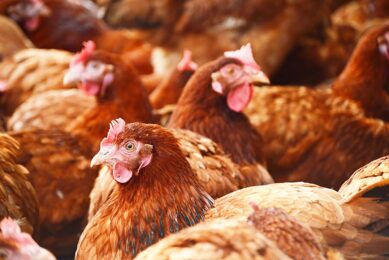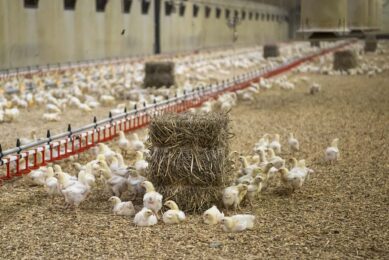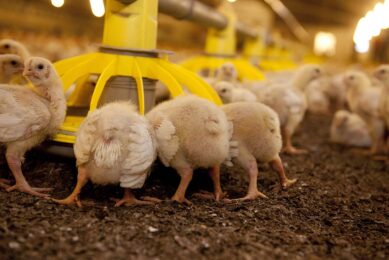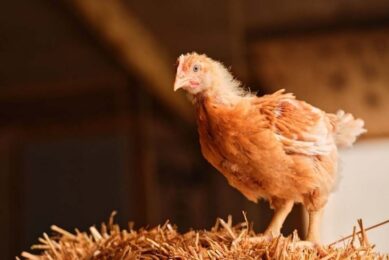Gumboro vaccination better for slower-growing table-birds
Free-range table-birds being reared from slower growing breeds need a different vaccination regime from that of faster-growing broilers, when being immunised against Gumboro disease.
This previously-unknown fact has emerged from laboratory and field trials, involving several hundred thousand birds on farms throughout the UK, carried out by Lohmann Animal Health in conjunction with poultry vets.
“When using a ‘hot’ vaccine conventional broilers in the UK are normally vaccinated at around 14-16 days when their maternal immunity is waning,†said Adam Goddard, Lohmann’s UK sales consult. “However, we’ve found this maternal immunity lasts longer in the slow-growing breeds which are reared both indoors and out.â€
Realistically, the correct day of vaccination for free-range table-birds is more likely to be achieved by using the vaccine date predictions for broiler-breeders, rather than that of the broiler, under the Deventer formula, which gives calculations for different types of bird.
He therefore advises producers to consult their vets who can take blood samples to get an accurate prediction regarding optimum timing of vaccination with their own particular flocks.
“Our trials have shown that, in general, and depending upon the breed used, the decline in maternal immunity is delayed – perhaps for 4-5 days. So, in order to get a better ‘take’, we recommend vaccinating these birds later or using an IBD vaccine that ‘takes’ in the presence of high maternal immunity,†said Goddard.
Earlier this year Lohmann Animal Health launched a new ‘hot’ vaccine, classified as an ‘intermediate plus’ against the very virulent form of Gumboro disease. Because of its ability to break through high levels of maternal antibodies, it allows vaccination to take place earlier than with other existing vaccines.
Related link:
Join 31,000+ subscribers
Subscribe to our newsletter to stay updated about all the need-to-know content in the poultry sector, three times a week. Beheer
Beheer








 WP Admin
WP Admin  Bewerk bericht
Bewerk bericht